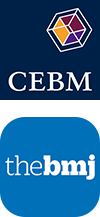



Benjamin Djulbegovic – Reducing overtreatment by optimizing sequence of diagnostic tests ordering.
Anke Heida – Efficacy of a web-based monitoring program for teenagers with IBD.
Kate Thomson – Reducing uncertainty in clinical diagnostic genetic testing.
Maria Congedo – Slow Medicine: the Italian approach to appropriateness cannot be through a law.
Guylene Theriault – EBMPICO: a web-based tool for teaching all 4 steps of EBM.
Martin Downes – Development of the Appraisal tool for Cross-Sectional Studies (AXIS)
Gavin Stewart – Identifying Cochrane citation classics.
Amanda Blatch-Jones – Nurturing the lifecycle of research.
Paul Brand – Achieving adherence: the art of shared decision making, and more.
Kathryn Wareham – Improving the quality of veterinary randomised controlled trials.
Anna Noel-Storr – Cochrane Crowd: the role of citizen science in evidence synthesis.